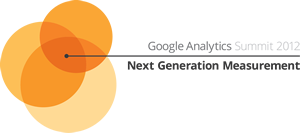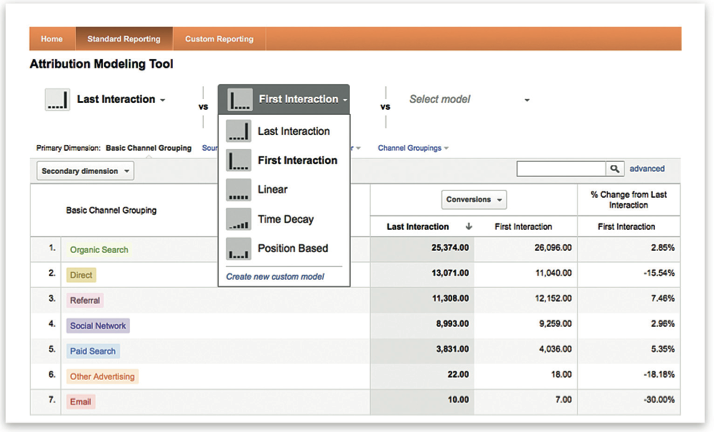The start of November 2012 saw the 8th Annual Google Analytics summit get underway. It was a two-day event where the best of the best in web analytics rub shoulders, network and gain valuable insights into the wonderful tool that is Google Analytics.

Each year we arrive in Mountain View on the outskirts of San Francisco with keen anticipation, expecting huge announcements that are truly groundbreaking and will change the world of Analytics. This year was not a disappointment with multiple announcements that not only drew gasps from the conference audience, but that mean big things for Google Analytics, and the analysts and companies that take advantage of the tool’s power.
Universal Analytics
The major announcement is the introduction of UNIVERSAL ANALYTICS. This is truly a game changer that revolutionises the way that Analytics works. Universal Analytics requires a new measurement protocol to be implemented that has been hugely simplified from the current tracking code setup. This new measurement protocol means there is a reduction in the dependency of cookies by making the cookie usage up to 80% lighter and easier to understand (meaning more time for analysis).
The main reason Universal Analytics is such a revelation is the ability it provides to allow multiple device tracking across multiple sessions. What this effectively provides is the ability to track the same user across multiple devices providing a great insight into behaviour that previously has just not been available, this will work using unique IDs and where possible data from CRMs such as login IDs can be utilised.
Dimension widening and data upload
One huge headache for analysts such as me has always been the lack of ability to effectively marry up data outside of Analytics with data within Google Analytics. An example of this is looking at external ecommerce data from an in-house system and comparing it to the data stored in Google Analytics. This has previously involved exporting the data from Analytics and using the power of Microsoft Excel to compare and get insights into the data which as we all know can be a pain. So when Google announced the introduction of Dimension Widening and Cost Sources Data Upload there was not a wider smile than mine in the audience.
Dimension widening and cost sources upload is the title behind the ability to upload data directly into Google Analytics and have all of your data in one place. Cost sources data for AdWords campaigns has been available for some time, but now cost data for all marketing campaigns can be brought into Google Analytics making it easier to analyse and see the ROI campaigns are driving.
Attribution modelling
Attribution seems to be the latest buzz word sweeping the digital marketing world. Understanding what channels contribute to your conversions either as the final step or during a conversion process is important to allow correct attribution of value across all of your campaigns. Google Analytics has reacted to the real interest around attribution by implementing attribution models directly into Google Analytics that can be used to get great insights into how your channels are contributing when looking at the bigger picture.

Google Analytics has also extended the look back window for this feature to a maximum of 90 days; this is particularly useful for conversions with longer lead times. This look back scale is completely flexible also and allows users to adapt to any look back window they require tailoring it to the typical lead times for their conversions.
Another great feature regarding attribution in the pipeline is data-led modelling. Using probability and the data available in analytics this data-led model will have the ability to understand how likely a channel is to contribute to a conversion. This will allow a value to be assigned to each channel that is fully justifiable as it effectively come direct from the data itself.
I am genuinely excited about the direction Google Analytics is taking. All of the features discussed in this post provide better and more valuable insights into areas that previously data was either unavailable or were laborious and time consuming to replicate. Each of the areas discussed are expected to be rolled out during the next few quarters.


